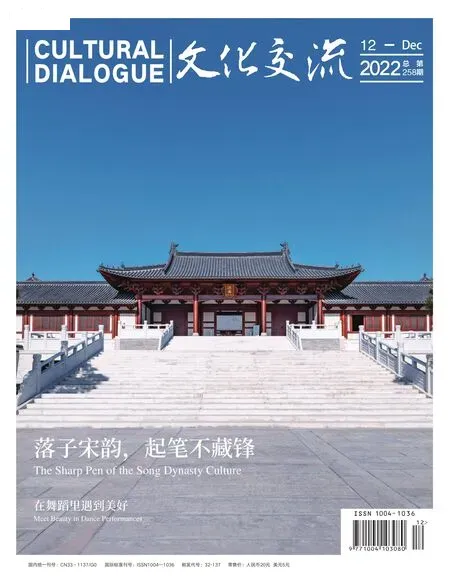王陽明與故鄉
文 /陳 醉 仇 歡

2022寧波(余姚)陽明文化季活動現場。The 2022 Ningbo (Yuyao) Yangming Cultural Festival was held to commemorate the 550th birthday of Wang Yangming.
11月底,在“陽明故里”寧波余姚,一場事關王陽明的盛會—“世界陽明學大會”鳴鑼啟幕。
這里,狹長的寧紹平原孕育出浙東學派、四明學派、陽明心學等熠熠生輝的學術思想,近代著名學者梁啟超評價:“余姚區區一邑,自明中葉至清中葉,兩百年間碩儒輩出,學風沾被全國及海東。”這其中,“陽明心學”尤為耀眼。
王陽明是被梁啟超稱為“兩個半圣人”之一的心學集大成者,風靡海內外達五個世紀之久。
“月是故鄉明”!王陽明出生、成長在余姚,悟道在貴州,立功在江西,歸葬在紹興,足跡遍及大半個中國。然而,中國自古有句老話,“一方水土養育一方人”,強調故鄉是個人成長的精神底色,余姚就是陽明心學萌發地、傳播地,寄予了“出走半生,歸來仍是少年”的美好愿望,是王陽明心中永遠的“光明月”。
陽明的故鄉與故鄉的陽明,缺一不可!
今天,在“陽明故里”,抬頭祈望燦爛星空,若這是古今圣哲賢達匯聚而成的星海,必有一顆是王陽明;也正是這一顆顆星辰,塑造了中國人獨立、健全、完整的文化心理,點亮了我們今天的文化自信。
“格竹少年”王陽明—“三立”的火種
初讀陽明心學,不免覺得晦澀。但當你縱觀王陽明多維人生之后,你便會豁然開朗!
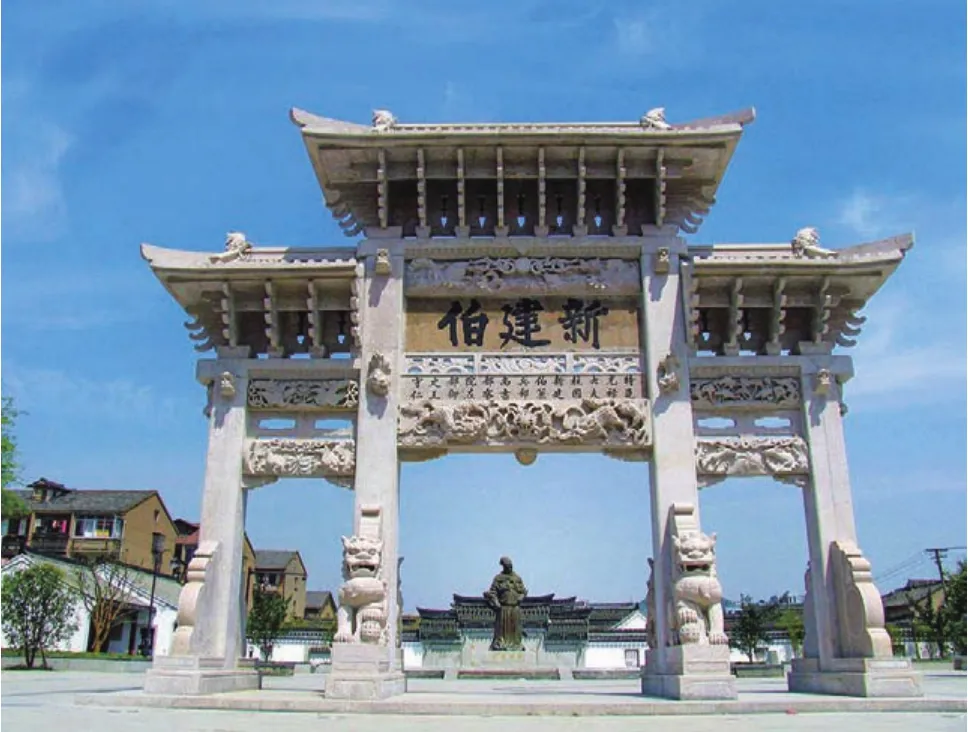
“新建伯”牌坊。徐渭明/攝The Duke of Xinjian memorial arch. Photo by Xu Weiming.
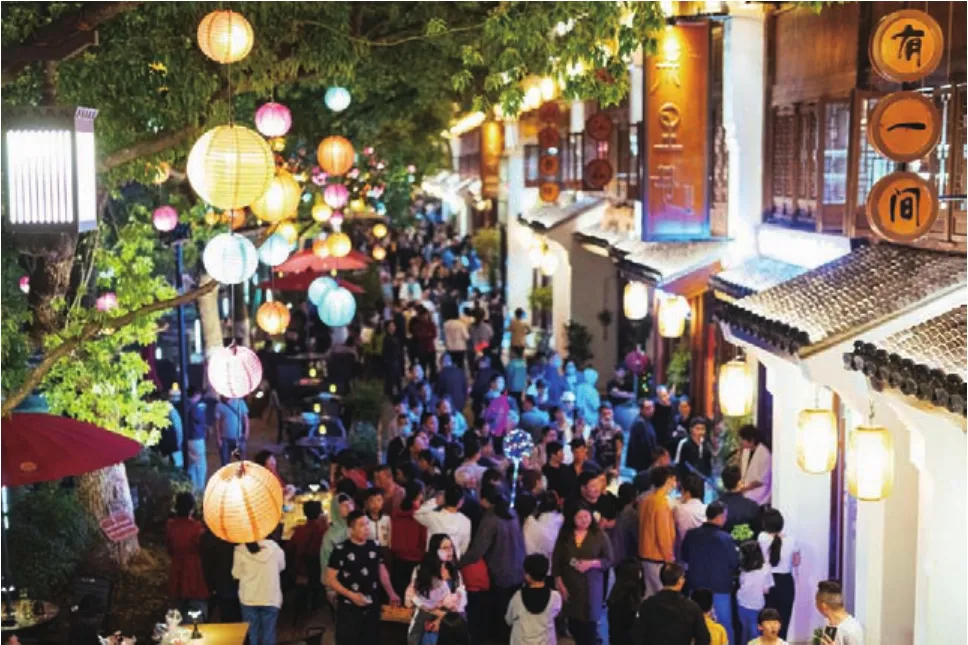
陽明古鎮。The Yangming ancient town.
于1472年10月31日出生的王陽明,是個天蝎座,內心細膩,總是想得太多。比如,他常常糾結自己究竟該做一個什么樣的人?很快,他就找到了不同尋常的宏大目標:做“天下第一等事業”。
可是,目標之下,少時的王陽明卻是現代詞匯里的“問題少年”,做游俠、學騎射、迷辭章、悟道學、參佛學,因這著名的“五溺”,他沒少挨長輩的板子。成年后,也是命運多舛,歷盡科舉不第、貶謫受誣等坎途,幸而,他仍懷抱“光明心”,志若鴻鵠,終于等來了開掛時刻—“龍場悟道”,成為一代曠世大儒。
“問題少年”到“一代圣人”,“立德、立功、立言”,王陽明這一路更像是“打怪升級”,“拼”的是一股子執拗勁兒。
比如立德,若有人告知你,圣賢說“格物致知”,就能領會萬事萬物之道。你會試嗎?大概率就是一笑置之吧。可王陽明真的去試了,他對著自己家院子里的竹子,一坐就是七天七夜,不吃不喝,直到把自己“格”倒。此后,經過大量實踐與內心煎熬,在1509年那個貧瘠的貴州龍場,他終于頓悟“圣人之道,吾性自足”,這就有了“陽明心學”。
而說到立功,王陽明主要的三次軍功都非常矚目:1517年平定江西匪亂,1519年平定寧王“宸濠之亂”,1527年平定廣西邊亂,幾次危中求勝,力挽狂瀾。曾有弟子問他,用兵的技巧是什么?他答:哪有什么技巧,只是努力做學問,“此心不動”,人心堅如磐石,雖寡亦可勝!
再說立言,王陽明把講學傳道看得比立功還重要。在《陽明先生年譜》中記載著這樣一個故事:在平定寧王“宸濠之亂”的戰爭中,前方激烈交戰,王陽明在后方“見縫插針”開堂講學,一旦有戰報傳來,他就暫停講課,當場處理,處理完了,再開講。可見,他對傳道授業也是近乎瘋狂地執著,一生的講學軌跡幾乎遍及大半個中國。
回頭看,不難發現,在王陽明通往“三立”的路上,本質上,他還是那個余姚故居里“格竹”的執拗少年—不撞南墻不回頭,這才是“燃燒”王陽明的真正火種。
放眼每個人的一世,難免要面對外在環境帶來的艱難與悖謬,即便有些境遇無法改變,即便有些理想依然遙遠,但最起碼,要保有自覺的銳氣,以強大的定力涵養自身,建立起自我與世界“高質量”的鏈接與對話方式。
“龍泉山主”王陽明—“心學”的發端
中國人歷來看重故土,書畫落款或詩文里常見“某地某某人”的自稱。
1518年,王陽明在贛州平定寇亂后,向朝廷上書告病還鄉,想到回余姚的可能,他興奮地寫下家信《與諸弟書》,囑咐在故鄉的諸弟:“為我掃松陰之石,開竹下之徑,俟我于舜江之滸,且告絕頂諸老衲,龍泉山主來矣。”
歸鄉之迫切,就濃縮在這最后一句—“龍泉山主來矣”!
“龍泉山”在哪里?距離王陽明降生的“瑞云樓”只有百余米,可以說,出了家門,走幾步,抬頭即見此山。
龍泉山就如余姚的靈脈,承載著“東南名邑”千年氣韻與人文積淀,沿著石階小徑,登上山頂,舉目遠眺,看盡一城的菁華。
在《送邵文實方伯致仕》中,王陽明提到,“舜水龍山予舊宅,讓公且作煙霞伯”,還有“我愛龍泉寺,寺僧頗疏野”“久別龍山云,時夢龍山雨”“終年走風塵,何似山中住”等其他詩文妙句,都足以證明龍泉山深深烙印在王陽明的心中,成為他的鄉愁標識。
龍泉山南坡,有一座重檐歇山頂五開間兩層樓房,叫中天閣。初建于五代時期,其名取自唐代詩人方千的《題龍泉山絕頂》—“中天氣爽星河近,下界時豐雷雨勻”,氣勢恢宏。
1521年秋天,年近五旬的王陽明回余姚省親時,被錢德洪等余姚74位學子迎拜為師,講學于此,創辦了“龍山講會”。他親自寫了一篇《中天閣勉諸生》,書于壁上。
今天再來看這文章,全文沒有高高在上的教誨之言,更像是一個即將離家遠行的師長,帶著點不放心,“不要因為我離開余姚,就荒廢學業”。離家后,“獨夜殘燈夢未成,蕭蕭總是故園聲”,道盡了心中的家與國。
一座龍泉山,一位自封的“龍泉山主”,足見故鄉帶給王陽明的是溫暖與堅韌,這就可以理解,在那些典籍、方志中記載的王陽明詩文中,故山、故園大多指向龍泉山、余姚城,它們既是現實故鄉,又是心靈原鄉。
何處是吾鄉,何處不陽明。
哲學有三大終極之問:“我是誰?從哪來?到哪去?”這也是每個人都會遇到的人生考題。在中華五千年文化長河里,這個問題連著中國人的故土情結,若放在“陽明心學”的閱讀理解題里,這“三問”又是解碼“陽明心學”的另一把鑰匙。
“知行合一”“致良知”都是名言,在王陽明的心學思想里,確定“良知”的現實要求是“視人猶己,視國猶家”,可見,至深的思鄉情懷是他心學的發端處,而“視國猶家”的實現路徑是“知行合一”的錘煉功夫。
“家國情懷”是對自己國家一種高度認同感和歸屬感、責任感和使命感,也是我們文化自信的根基。今天的我們或許比歷史上任何時候都更應該讀懂“龍泉山主”王陽明,錘煉個體由內向外的精神力量。
“千變萬化”王陽明—文化的“遠征”
500多年后的今天,余姚龍泉山一帶新建中式牌坊、陽明故居、陽明古鎮等建筑群,朝圣者不斷,依稀就像當年王陽明講學時的盛景。
你行走在這座“陽明故里”中,腳下踏著陽明路、新建路,眼睛隨處能捕捉到冠以“陽明”兩字的學校、機構、企業,還有當地人身上那種低調內斂的文人氣息,隱隱約約都藏著“陽明精神”的影子。
這又是另一個“王陽明”的故事了,他是穿越時空的王陽明,是千變萬化的王陽明。
昔日“龍泉山主”吟誦講學的龍泉山,今天也是姚劇保護傳承中心的安居處,中國首部姚劇《王陽明》便出自這里。
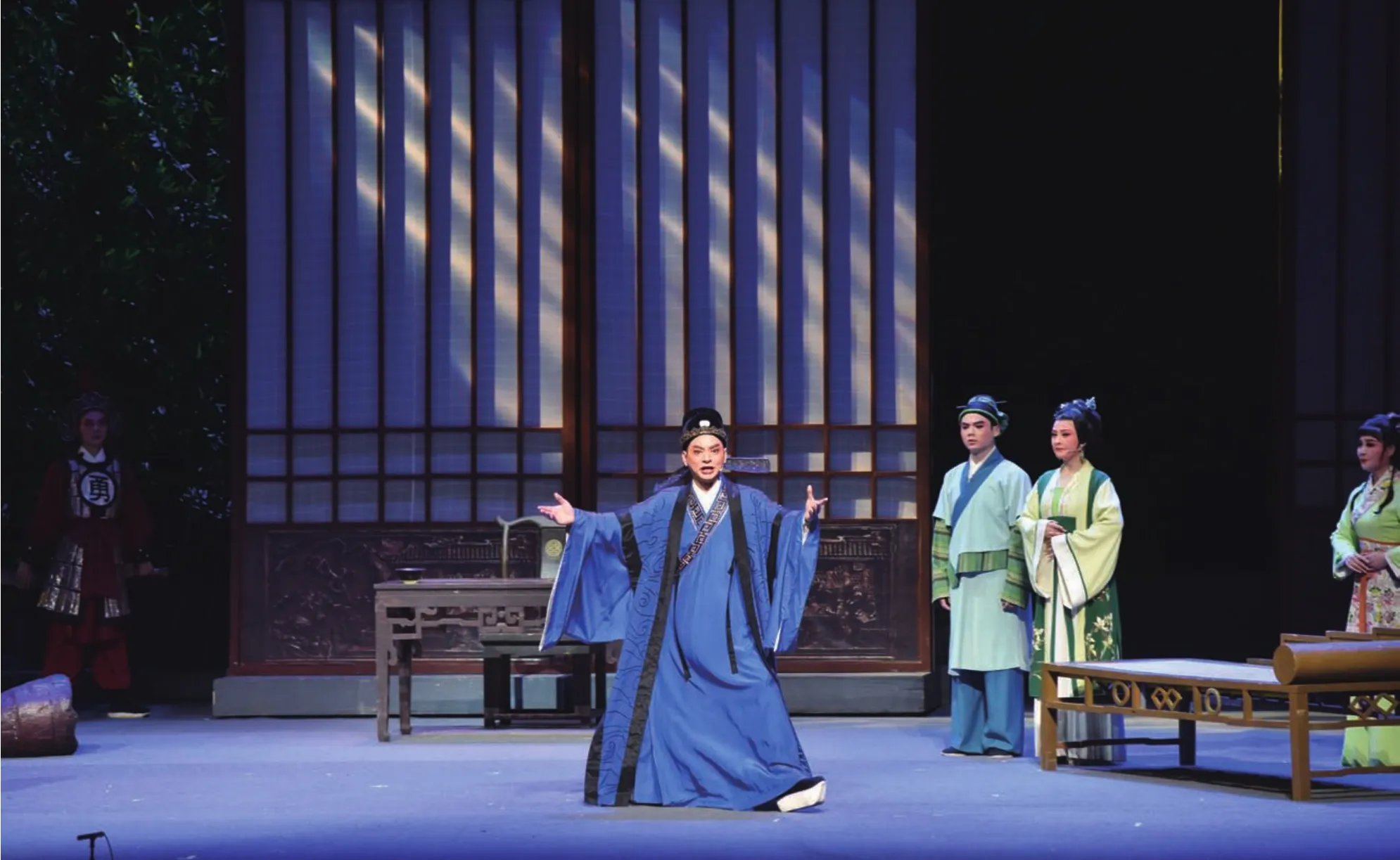
姚劇《王陽明》演出。Wang Yangming, a Yao opera, is staged.
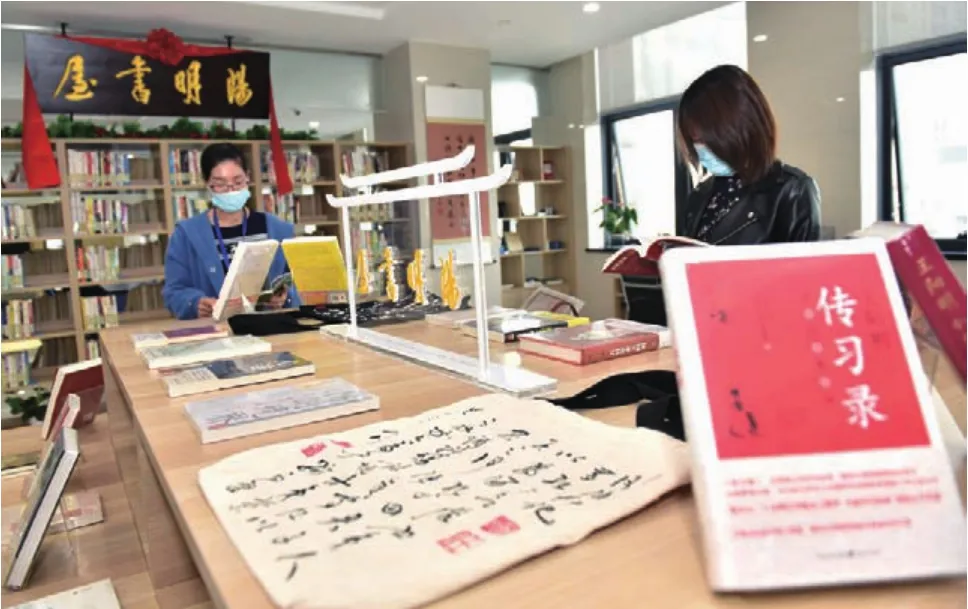
陽明書屋。The Yangming Bookshop.
“我想要瀟灑一點,先跨左邊一步。”“王陽明”第一代扮演者壽建立反復調整臺步。該怎么演?“能做的,只有無限接近他!”這段“路”,他和團隊花了整整3年時間。這個婉轉唱腔間的“王陽明”,上過首都北京,去過中國臺灣,到過日本,100場演出大獲成功,給了世人一個可以對話的“余姚王陽明”!
“陽明故里”有一碗標志性的“黃魚面”,魚香撲鼻,肉嫩面滑,湯濃味醇,讓品嘗過它的許多人難以割舍,饕客們喜歡稱它為“知行合一”面,因為,一碗面做了二十多年,功夫與心力早已化在細節處。
比肩國際龍頭的“江豐”芯片靶材,搭載于手機和汽車的“舜宇”光學鏡頭,驅動新能源汽車的“容百”正極材料,走進千家萬戶的“富佳”家電,這些中國“牛企牛品”的共通點,都有著一顆“致良知”的內核,以及作為“知行合一”踐行者的使命擔當……
若將視野再放大,當今世界,何處不陽明?
這樣的“陽明”,與書中的、史料中的、故事中的王陽明那么不同,他不僅僅是“坐而論道”的一項修心學問,更是“起而行之”地將陽明精神實化與物化,以千萬種形態或形式融進當今社會生活的方方面面。
在整個哲學體系里,陽明學也是一種社會政治哲學,它并不完全討論現代哲學中“人如何認識世界”的命題,而是包含一些對客觀世界規則的認可。像“心即理”思想中,王陽明講的“心”,并非主觀的“心”,而是我們的“心”要跟客觀世界的“理”吻合,這個“心”才構成真正的“良知”。這就不難理解,在長達500多年的時空里,文化迥異的東北亞國家如日本、韓國以及東南亞的越南等國家和地區,都深受“陽明學”的影響,也因此改變著當地政治經濟和人文社會的發展格局。
從這個意義上來看,“千變萬化”王陽明,既是一次中華優秀思想文化的“歸來”,更是一次立足當下、指向未來的“遠征”。
(感謝勞超杰對本文的貢獻,圖片由余姚市委宣傳部提供)
Wang Yangming and His Hometown
By Chen Zui Qiu Huan
At the end of November, 2022, in Yuyao, Ningbo, the hometown of Wang Yangming, a grand event — the “World Conference on Wang Yangming Philosophy” opened.
Wang Yangming (1472-1529), called by Liang Qichao (1873-1929) as one of the “two and a half sages”, has been popular at home and abroad for five centuries. “The moon viewed at home is brighter!” Wang Yangming was born and bred in Yuyao,enlightened in Guizhou, meritorious in Jiangxi, and buried in Shaoxing, with his life journey covering more than half of China. Just as an old saying goes, “The unique features of a local environment always give special characteristics to its inhabitants”,emphasizing that hometown is the spiritual background of personal growth. Yuyao is the birthplace as well as the place disseminating Yangming philosophy, and the eternal “bright moon” in Wang Yangming's heart.
A first reading of Wang Yangming Philosophy may seem obscure to you. However, when you get familiar with Wang Yangming's multi-dimensional life, you will suddenly be enlightened! Wang Yangming was born on October 31, 1472.From a “problem youth” to a “sage”, Wang Yangming's life journey is more like a game of “fighting and upgrading”, with a stubborn spirit to achieve “three Li”.
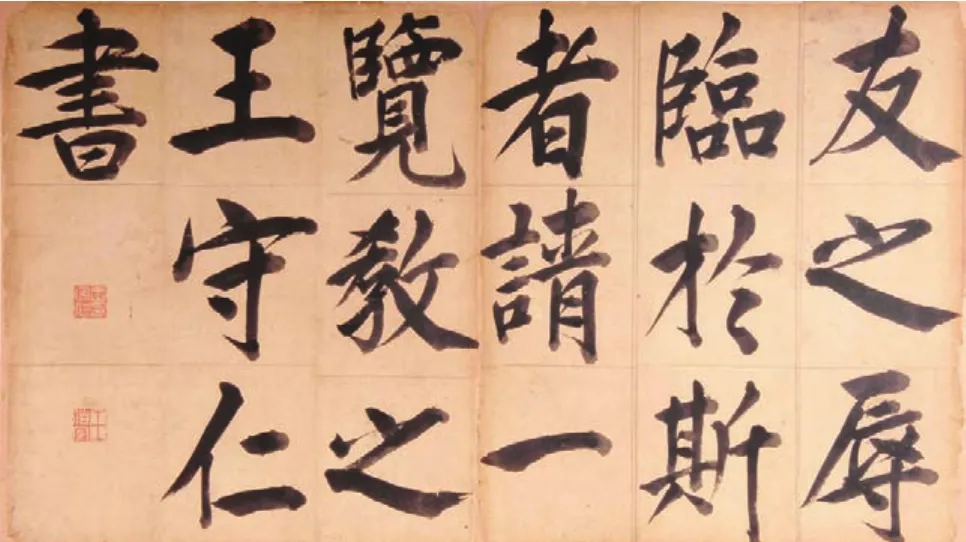
王陽明家書。Family letters of Wang Yangming.
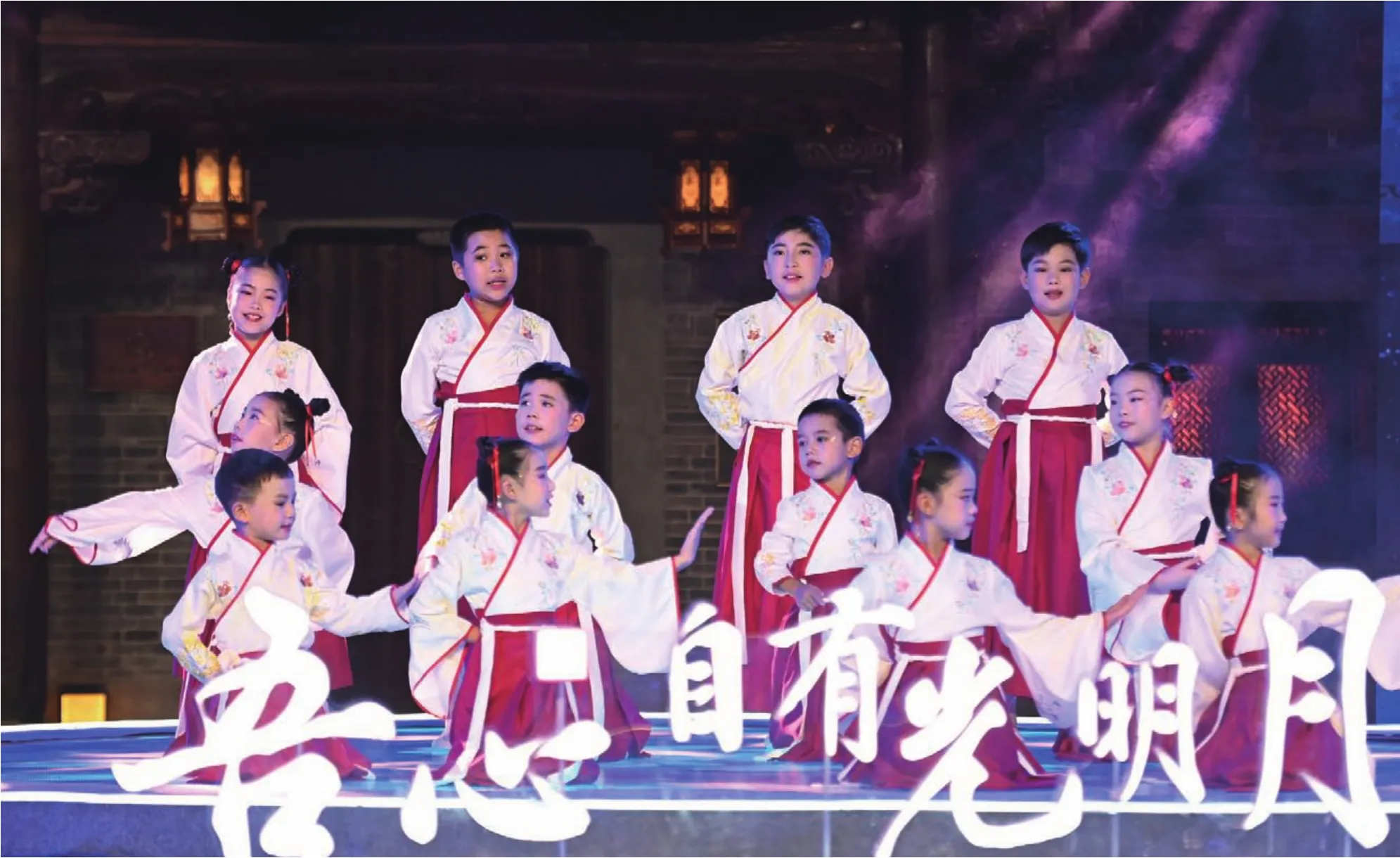
2022寧波(余姚)陽明文化季啟動儀式暨“吾心自有光明月”中秋詩會。A poetry recital celebrating the Mid-Autumn Day ushered in the 2022 Ningbo (Yuyao) Yangming Cultural Festival.
Firstly, we haveLi De(or to gain virtue). The sages said that“learning from nature” helped understand the way of everything.Wang Yangming really went to try it. He sat facing the bamboo in his yard for seven days and nights without eating or drinking until he fell sick. After a lot of practice and inner suffering, in the barren Longchang of Guizhou in 1509, he finally realized that “the way of sages comes from self-sufficiency”, which gave birth to “Wang Yangmin Philosophy".
When it comes toLi Gong(or to render meritorious service),Wang Yangming's three major military achievements were impressive: In 1517, he suppressed the bandits in Jiangxi; in 1519,he pacified the Chenhao Rebellion of King of Ning; and in 1527,he calmed down the border riots in Guangxi. He made several victories in dangerous situations to turn the tide. In his mind, a firm heart was the key to success and the skill of military maneuvers.
Talking aboutLi Yan(or to achieve glory through writing),Wang Yangming regarded lecturing and preaching as more important than rendering meritorious service. In the Chronicle of Wang Yangming, there is a story that in the war to pacify the Chenhao Rebellion, Wang Yangming fought fiercely in the front while giving lectures in the rear. Indeed, he had given lectures in more than half of China.
Looking back on Wang Yangming’s way to “three Li”, he was in essence still the stubborn youth “investigating bamboo” in his former residence in Yuyao — he did not turn back until he hit the wall, which was the real kindling to inspire Wang Yangming.
In 1518, Wang Yangming wrote to the imperial court after he suppressed the bandit rebellion in Ganzhou. Thinking of the possibility of coming back to Yuyao, he excitedly wroteA Letter to the Younger Brothers. His eagerness of returning home was condensed in the last sentence — "The Master of Longquan Mountain is coming"!
The Longquan Mountain and the self-styled Longquan Mountain master are testament that his hometown brought Wang Yangming warmth and tenacity. It can be understood that in the poems and essays of Wang Yangming recorded in those ancient books and local chronicles, the mountain and hometown mostly referred to Longquan Mountain and Yuyao, which were both his real and spiritual hometown.
There are three ultimate questions in philosophy: “Who am I?Where do I come from? Where do I go?” This is also a test in life that everyone encounters. In the long history of Chinese culture,these questions are connected with the native land complex of the Chinese people. Put in the reading comprehension topics on Wang Yangming Philoshophy, the "three questions" are another key to decoding the Philosophy.
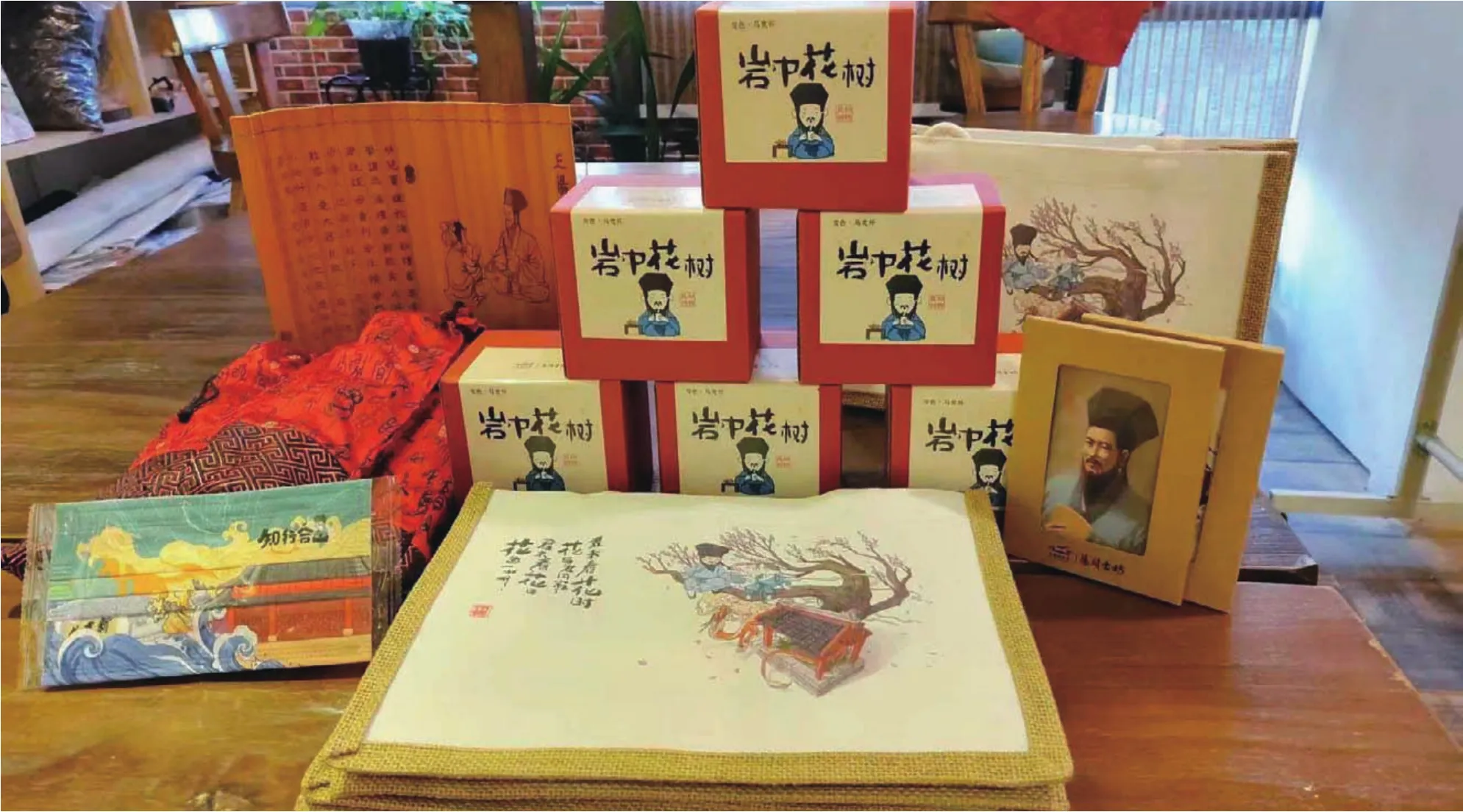
陽明文創。Cultural products related to Wang Yangming.
The “Unity of Knowledge and Practice” and the “Extention of the Intuitive Knowledge” are his famous sayings. In Wang Yangming Philosophy, the realistic requirement of “Intuitive Knowledge” is to “treat others as equals to yourself and the country as equals to your family”. Thus the deepest nostalgia is the starting point of his philosophy, and the path to realize “treating the country as equals to the family” is the tempering effort of the“Unity of Knowledge and Practice”.
Today, more than 500 years later, there are newly built Chinese memorial gateways, Wang Yangming’s Former Residence,Yangming Ancient Town and other architectural complexes in the Longquan Mountain area in Yuyao. Pilgrims keep coming,emulating the grand scene when Wang Yangming gave a lecture.
Walking in Wang Yangming’s hometown, you can catch sight of schools, institutions, enterprises, among others, prefixed with the word “Yangming” everywhere, and sense the literati atmosphere of the low-key and introverted local people, which also reveals the spirit of Wang Yangming.
Longquan Mountain, where its master once recited and lectured, is also the residence of the Yao Opera Conservation and Inheritance Center today. Shou Jianli, among the first generation actors of “Wang Yangming”, and his team have spent three years planning and performing the first Yao OperaWang Yangming.Apart from Chinese cities, they have taken it to Japan as well.Their 100 performances have been successful, giving the world a vivid Wang Yangming from Yuyao.
In the local area, there are many well-known Chinese enterprises and products, all with a core of the “Extention of the Intuitive Knowledge” and a mission as practitioners of the “Unity of Knowledge and Practice”. If you enlarge your vision, there is the spirit of Wang Yangming everywhere in the world!
This kind of “Wang Yangming” is so different from the person described in books, historical materials and stories. He is not only a self-cultivation knowledge of “sitting and prattling about the general principles”, but also a way of “getting up and doing”to materialize the spirit of Yangming and to integrate it into all aspects of today's social life in thousands of forms.
In the whole philosophical system, Wang Yangming Philosophy is also intimately connected with people’s social and political life. For more than 500 years, countries and regions in Northeast Asia with different cultures, such as Japan, Korea and Vietnam in Southeast Asia, have been deeply influenced by his philosophy, which has also changed the development pattern of their local politics, economy and society.
In this sense, the ever-changing Yangming spirit is not only a return of the fine Chinese ideology and culture, but also an expedition based on the present and pointing to the future.

